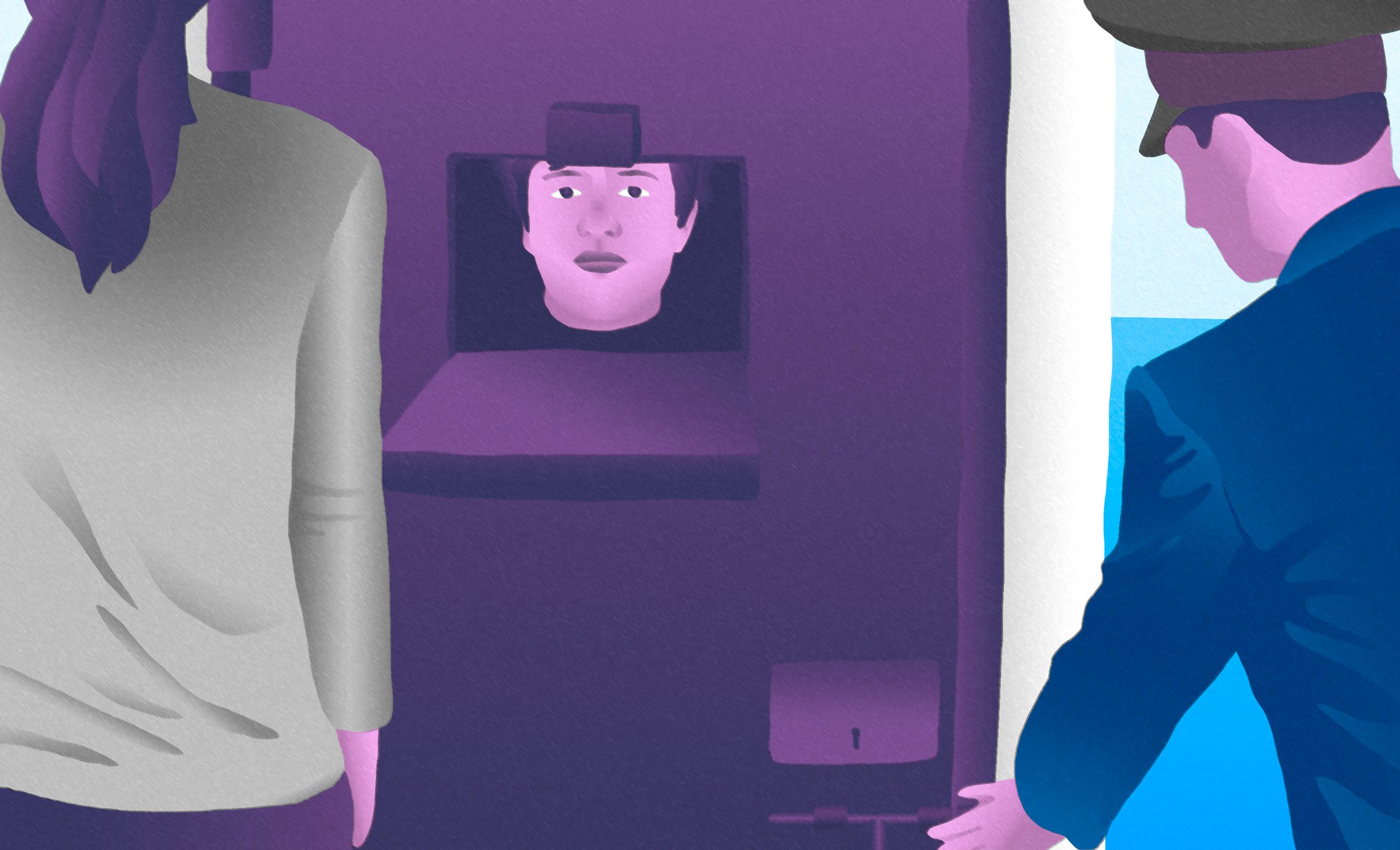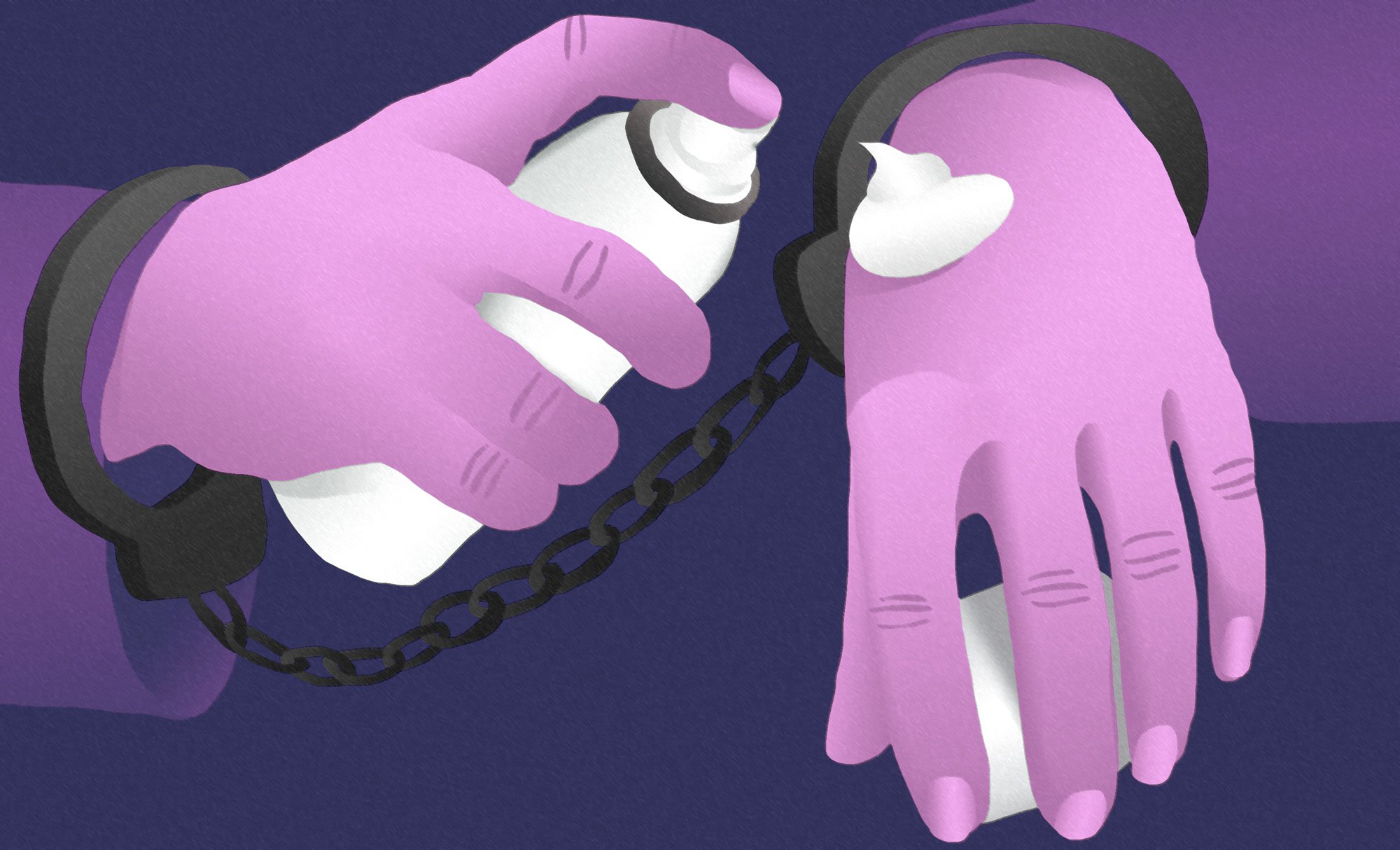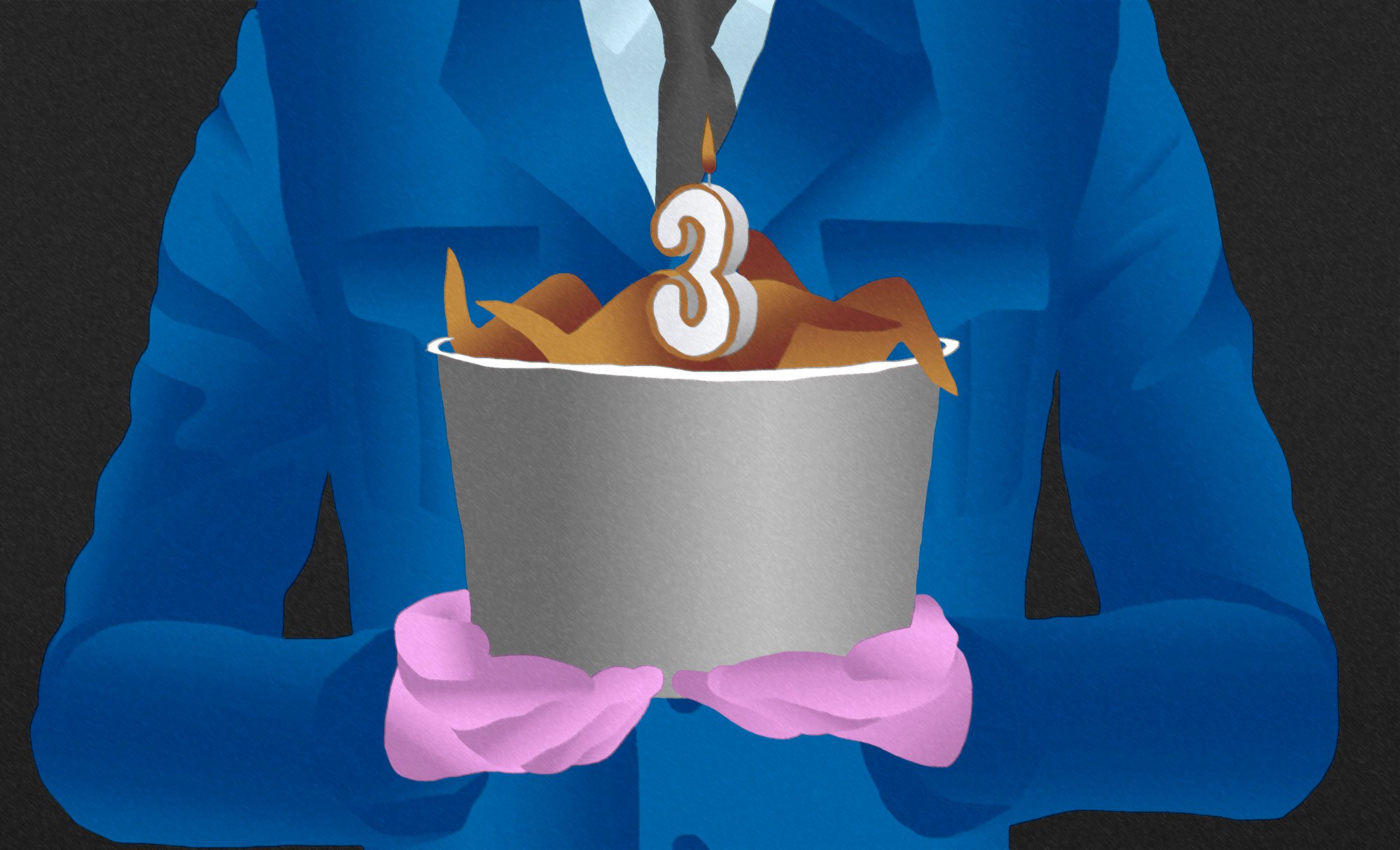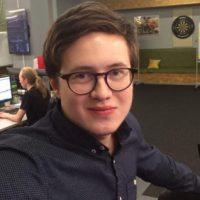If you have found a spelling error, please, notify us by selecting that text and pressing Ctrl+Enter.
In January 2018, Viktor Filinkov was abducted in St Petersburg. When he resurfaced days later, he had been tortured by the security services and confessed to terrorism charges. This is the second part of his prison diary.
Since October 2017, nine people have arrested as part of “The Network” case, which has seen Russian anti-fascists and anarchists in St Petersburg and Penza detained on terrorism charges. According to investigators, all the arrested men were members of an organisation that planned to use explosives to provoke the “popular masses for further destabilisation of the political climate in the country” during the Russian presidential elections and football World Cup. Cells of the organisation were allegedly operating in Moscow, St Petersburg, Penza and Belarus.
In February 2018, software engineer Viktor Filinkov, who was arrested in Petersburg in late January in connection with this case, passed his diary to the Public Monitoring Commission. In the diary, Filinkov, 23, describes in detail how, after he was detained at Petersburg’s Pulkovo Airport, FSB agents tortured him as they forced him to learn a false confession by heart before signing it.
“They asked questions. If I didn’t know the answer, they hit me with electric shocks, if the answer didn’t correspond to their (expectations) – they hit me with shocks. If I tried to think or formulate – I was hit with electric currents. If I forgot what they said, I was hit with currents.”Now Mediazona publishes the second part of Viktor Filinkov’s diary, which describes the FSB agents’ attempts to make Filinkov “cooperate” by persuasion rather than force. We publish it here with permission.
24 January. Sleeping after torture and court
I was allowed to take a shower and then taken to a cell. First of all, I decided to investigate the wounds on my body. My whole right thigh, apart from its inner side, was covered with burns of different degrees – from barely visible marks with rays to large spots, more than one centimetre in diameter. It was possible to trace the pairs of these spots located at the equal distance.
I found a big bruise on my shin, which I received, I assume, when my leg jerked automatically from the shocker. I also found burns on my chest. I didn’t think of looking at the back of my neck. My wrists were covered in large bruises and cuts, received, I think, due to the sharp movements of my hands against the electrodes of the shocker. I felt pain in my chest, but there were no bruises. My back didn’t hurt. I also had a big cut on my face, and some smaller ones on the left side of it.
I sat down, thinking what to do. They brought supper, something with fish. I ate it and read the PVR (the Rules of the Internal Order of the Detention Centre) and some papers with the corrections to the PVR. Around midnight, I lied down in “bed” and covered myself with a blanket.
25 January. A visit from the Public Monitoring Commission
The feeding trap of the door suddenly opened, and I was asked to say my surname. I replied, after which the door opened. Four or five people entered the cell: two girls in plain clothes, others in FSIN uniform (Federal Penitentiary Service). One FSIN agent, who was standing between me and the girls in plain clothes, had a video camera; a green light indicated it was on. I decided that was another attempt to check my “cooperation”.
Illustration: Maria Tolstova / Mediazona. All rights reserved.
“Ekaterina Sergeyevna Kosarevskaya, Yana Igorevna Tepliskaya,” the girls introduced themselves. The said that they were from some Public Monitoring Commission. They asked what happened to my face, and whether there were any other injuries during arrest. I replied as I was supposed to: I got the injuries in the car when it broke suddenly, nothing else. I mentioned that the agents gave me a kebab. I was told that a half of Piter (St Petersburg) lost me for a couple of days already, and so that they found me, but there were other people who had disappeared. They also said that my wife loved me and would do everything to help, and that Agora (Agora International Human Rights Association) would provide a lawyer, which was agreed with my wife. I don’t remember anything else from that conversation.I decided that this was a crucial moment and I had to fight.
They left. One of the FSIN agents returned and explained that it was not allowed to lie under blanket before the official lights-out (10pm) and advised me to read the PVR. Only after the meeting, I understood what the Public Monitoring Commission was and what had happened. When I opened the last page of the PVR, I found the contacts of the Public Monitoring Commission and understood that they were independent from the FSIN. The surname of the lawyer was also familiar, I’d seen his interview on Radio Svoboda about the case of Vadim Osipov, who is accused of a plot to blow up his barracks – yet another preposterous case, the only purpose of it is to add more stars to FSB agents’ epaulettes and increase the fake necessity of the security services, who apparently guarantee public safety. I also recognised the style of my wife’s message and figured that the public was now involved.After I decided that this was a crucial moment and I had to fight, I fell asleep on the slats of the bed. Of course, it’s difficult to call this sleep: I dreamt of torture, and when I rolled over and lay on my burns, I would wake up.

26 January. A visit from a lawyer and anti-burn spray
I woke up at reveille. Breakfast was brought, and I learned the procedure of visiting a doctor. They came and asked whether I had anything to say or complain about, and I made an appointment.
A woman in a white robe received me.
“What do you have?”
I pointed to my thigh.
“Dear lord, what’s that? From what?”
“Well, burns of an industrial type,” I replied, and wished I was less cowardly, and I thought I’d missed my chance.
“A taser, was it?”
“Yes.”
“Ok, I will take you for an examination.”
I thanked the woman. There was also something about panthenol [a healing crème or spray used for burns and skin inflammations]. Soon afterwards, I was called for exercise, and I agreed to go.
Around lunchtime, an FSIN employee came and issued me some panthenol spray. I replied that I didn’t need a spray, but a proper examination that would record the injuries inflicted by torture. The woman was surprised and I showed her my thigh. I used the spray.

It was a Friday, and any activities relating to the investigation were permitted from two to five pm. Around five pm, I was summed, it was Agora’s lawyer Vitaliy Cherkasov, I recognised his face. Our meeting lasted around 15 minutes, after which I was taken back to the cell. At the meeting, I briefly described the situation, showed twice the traces of torture and told him about my intention to resist the crimes (of the FSB). When he said goodbye, Vitaly told me that a lot would now depend on my fortitude.
A couple of hours after the lawyers’ visit, before dinner, I was called up again. It was Yana and Ekaterina from the Public Monitoring Commission. I admitted that I had concealed a lot the day before. I showed the injuries left by torture, also in front of the FSIN agents’ camera, and briefly described the circumstances of my arrest.
27 January. An enraged doctor
On Saturday, 27 January, I was able to see a doctor at Pre-Trial Detention Centre No. 3 (SIZO-3). I was brought there and instructed to show (the injuries). A medic examined me and made some notes, after which I was returned to my cell and told I could ask for panthenol spray at any time to put it on my burns.
Closer to dinner, I was brought to the medical room again. There was the doctor from Pre-Trial Detention Centre No. 3 who “checked me” in the first place. He was enraged. I showed him my burns, some of which already began to get covered with scabs, and the biggest one had pus in it. He was looking at his journal and then at the burns, and suggested to smear it with brilliant green. I refused and apologised for my cowardice. “Well, you could have told us when you were examined for the second time,” he was angry.
Using my ignorance, the employees of Pre-Trial Detention Centre No. 3 persuaded me to write a note confirming that all bruises, wounds, cuts and burns were from the period of my arrest and that I didn’t have any complaints against the FSIN. They persuaded me to give a date that wasn’t correct – 25 January, instead of 27 January. There was only a problem with the date, I experienced no violence at the pre-trial detention centre.
29 January. FSB agents’ visit
Nothing happened on 28 January, but the next day after breakfast the doctor who had examined me approached me. He apologised and said that he’d lost it the day before. He examined my thigh. We spoke a little longer, he said that I shouldn’t bear any grudges against the agent (who tortured me), that he would get his due and, in general, you have to forgive. While I was in the quarantine, the doctor came every couple of days and checked my leg, saying “Aha, everything has almost healed by now.” When I left the quarantine where I was held for 15 out of 15 maximum allowed days, everything had, indeed, almost healed. Usually you’re moved from the quarantine in the first 10 days. My cellmate could only see around 10 or 15 spots on my thigh, some of them were scabbing.
At eight pm, on 29 January, before dinner, I was called up to the investigation room. When I entered, I saw two men, one of them I immediately recognised as the senior agent of St Petersburg and Leningrad Regional FSB Directorate, K.A. Bondarev, the other I saw for the first time. I sat across from Bondarev., and the second agent sat to the left from me on the side of a table.
“So, how are you?” asked Bondarev.
“What do you think yourself?” I replied.
“It. Is. Me. Who. Asks. Questions. Here!” Bondarev put me in my place.
First, they told me some wonderful stories about how well the people who were cooperating with the investigation were doing: they could have got 24 years, but were imprisoned for 17; threatened with seven years, but got only three, two of them in a pre-trial detention centre and then freed on parole. They also told me how they – FSB agents – were bringing chicken wings to those they’d “caught”. They also mentioned that they had good relations with local prisoners, they were even mates with some of them. For the past five years – my whole conscious life – I have lived according to concepts such as mutual help, sisterhood, brotherhood, equality and justice.
It was absolutely clear that their visit was connection to publications in media about torture. I decided to explore the essence of their requests: “I am facing (a term) from five years (in prison), and I am only 23, you understand?” Bondarev started telling me about parole. I had to interrupt him just like the state lawyer: “There is neither parole, nor a suspended sentence for Article 205 of the Criminal Code.” The second agent confirmed that. Bondarev started talking about the punishment below the lowest possible. The second agent echoed him, saying that they could influence the investigation. “I will talk to my lawyer,” I replied, giving them a false hope that the situation would return to their control.
“No-o-o, you give us information now, we check it, show it to the investigation, and then we make a deal,” the second agent still hoped to sort out everything during this meeting. He had an open notebook titled “Filinkov Viktor Sergeevich” in front of him. He was ready to record my every word.
“For a pre-court (agreement) we need information useful for the investigation. You know perfectly well yourself that I have nothing to say,” I decided to close this topic, tired of their attempts to persuade me.
“That’s understandable. We’ll help you. You will tell us in detail who FFF is,” Bondarev explained their position. “This is our magic wand for you.
”For about five minutes they were telling me how easy it would be for them to get this information themselves.
‘We will ‘count’ him ourselves. This week for sure. Also, we have lots of technical means, you understand.
”They were saying that they wanted to help me:
“I see in front of me a young guy who was unlucky.”
They promised to give me a sentence below the lowest tariff and that I would go to prison for three years only. They were convincing me in tandem: “You will tell us now, and we will guide the investigation towards a correct decision.”
“Everyone is going to prison. But you have a chance.”
“Who gets up first gets the slippers. A pre-court agreement is only possible with a single person.”
“You’re a normal guy, you understand everything.”
I replied: “I will discuss everything with my lawyer, I don’t have enough legal expertise myself.”
They were pressing: “But it’s your lawyer who needs you! It’s lucrative for them to prolong the case, they get money from you. You should be in charge and make decisions.”
By that time I already made a decision. The page in the FSB agent’s notebook remained blank. Then they shifted, quite smoothly, almost unnoticeably, to threats.
“So you are now in Pre-Trial Detention Centre No. 3. This is the best detention centre in the city, there are only 100 people here. But there is also Kresty-2, there are 1,000 people there. I don’t understand how they manage it. There, a cellmate will beat you to death and nobody would even hear it,” Bondarev returned to his old threats.
That did not work anymore. I was ready “to drive to Penza with specialists” (a threat from the initial period of Filinkov’s detention). Or so it seemed to me.
The agents also asked substantive questions. The second agent asked me to identify KKK, showing me her photo on his phone, which he held under the table, so that it was not caught on CCTV.

“Look left. Is this her?”
I saw the photo for the first time. Flicking the pictures in his phone, the agent went too far, and there appeared a photo of Putin against a black background with some inscriptions, which I couldn’t read. “No, this is something else,” he said, flicking back. In parallel, they asked me a few more questions I could not answer.
“You were saying you weren’t animals,” I addressed Bondarev. “How could you use torture?”
“You know, I myself don’t like doing it. Let’s talk human to a human. I sincerely apologise,” Bondarev held out his hand.
Turning my gaze down, I shook my head.
“I cannot accept your apologies now,” I refused, but leaving them hope that the situation could improve later.
They told me that everything was under their control and nobody could help me.
“Even at your work, there are our people. We have been in touch with your bosses for a long time,” the agent was telling me the harsh truth about how the security services were “protecting” businesses.“
‘Do you know who D.Z. is?”
“Yes, he is a (job title) in my company.”
“So, he was also sitting here, back in his student years. And, it was fine, he cooperated okay. All the people you know at work, we’re friends with them too.”
It was becoming clear who in this room was omnipotent and decides everything.
“I will return tomorrow with the documents, your bosses want you to resign of your own will,” the second agent said.
“Introduce yourself,” I asked, when the agent got up from his table and came to mine.
“Bondarev, Konstantin A.,” he said strictly, with a frown.
I didn’t know his name until that moment. You could say it was the moment of introduction – almost a week after the torture.
“And you?” I addressed the second agent. “Because you guys never introduce yourselves.”
“Prudnikov,” he replied, showing me the paperwork for their visit. “We are here officially.”
I compared the surnames they mentioned with those in the document, they matched.“
The Public Monitoring Commission people are working against you,” Bondarev said as he left the room.
Bondarev was dressed in a blue suit, the jacket looked expensive. Prudnikov was dressed in a jumper, perhaps, with a shirt underneath. I didn’t think that agents were allowed to visit suspects in detention. At first, the meeting made me absolutely terrified, but I wasn’t ready to change my decision.
I suspect I have suffered the least. For the past five years – my whole conscious life – I have lived according to concepts such as mutual help, sisterhood, brotherhood, equality and justice. Any suspicions of my involvement in the preparations of crimes dangerous for society are offensive to me. I expect that the state attorney is going to ask for a term close to the maximum one for me.
I refuse to accept handouts in the form of a three-year prison term from these criminals and would exchange two of my lives to defend my name and so that you can read these lines.
Not everyone is ready for this, but you shouldn’t blame anyone. Everyone needs your support and perhaps help. Alerta!
Read the first part of Viktor Filinkov’s diary here.
If you have found a spelling error, please, notify us by selecting that text and pressing Ctrl+Enter.
This post is also available in: Русский (Russian)

Spelling error report
The following text will be sent to our editors: